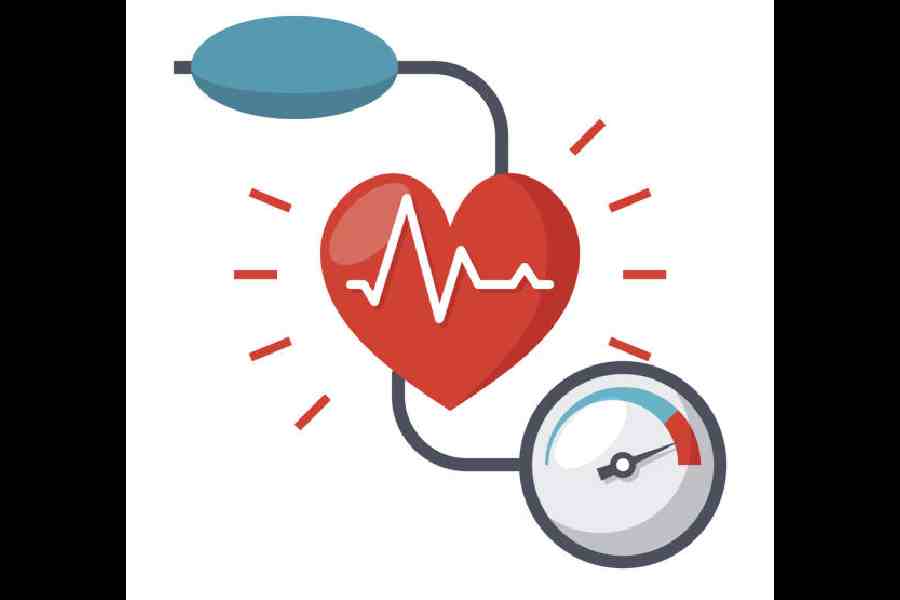Doctors alone can do little to treat high blood pressure (BP) if the patients do not embrace a healthy lifestyle, said doctors.
“Blood pressure, sugar, thyroid, cholesterol, these are all your responsibilities. I cannot come every day and say if your lifestyle is okay. Stop smoking and all that. For me, blood pressure control through lifestyle modifications is quintessential,” Kaushik Sundar, stroke and interventional neurologist at the RN Tagore International Institute of Cardiac Sciences-Narayana Health, said during a virtual session to observe the World Hypertension Day on May 17.
Ayan Kar, consultant cardiologist at the hospital and the other speaker at the event, said: “We always blame our genetics, our surroundings for a lot of diseases. But I think a lot of that has to do with our lifestyle. The way you live, eat, exercise, sleep, these are all parts of how you control your blood pressure.”
Hypertension is a condition in which the force of the blood against the artery walls is too high.
According to the World Health Organisation: “Of the estimated 220 million people in India living with hypertension, only 12 per cent have their blood pressure under control. Hypertension kills more adults than any other cause and is readily preventable and treatable.”
Blood pressure can affect almost every part of your body, according to doctors. It can cause strokes in the brain, visual problems, including sudden blindness, heart attacks and kidney problems.
Neurologist Sundar later told The Telegraph that looking at hypertension as a disease is not the right approach.
“If you look at it as a disease, you will think of going to a doctor and taking medicines and be okay. But this is not the right approach. There are a lot of other things in your daily life that affect your blood pressure. For example, the kind of food you eat. A high-salt diet or a lot of junk food and lack of good sleep tend to keep your blood pressure up. Similarly, if you exercise regularly, your diastolic blood pressure becomes better,” he said.
“A significant section of the patients do not take care of these things. But unless we are able to get these things right, coming to a doctor every time and asking for medicines to control the blood pressure won’t work,” he said.
Rabin Chakraborty, senior interventional cardiologist at Medica Superspecialty
Hospital, said the majority of hypertension patients are asymptomatic.
“They don’t understand that they have a problem. Because hypertension, in itself, is not a disease. It is a situation that can cause diseases. There could be diseases in the heart, kidney or brain. Therefore, besides taking medicine, it is the responsibility of the patients to lead a lifestyle so that blood pressure remains under control. Proper diet, exercise, curbs on smoking and alcohol — these are some of the things that people need to be careful about,” he said.
“For these kinds of lifestyle diseases, like hypertension, diabetes, abnormal cholesterol, there should be space for cardio-vascular educators in doctors’ clinics. They will sit with doctors in their clinics and educate the patients,” said Chakraborty.











